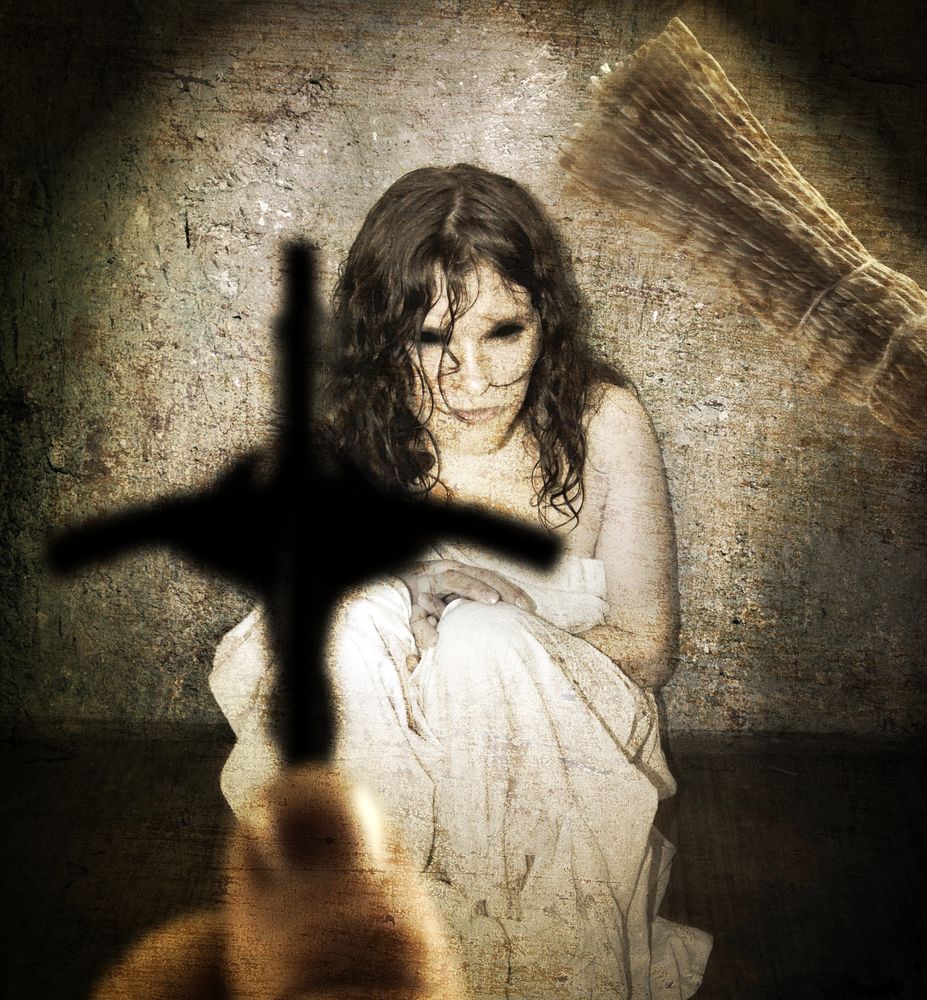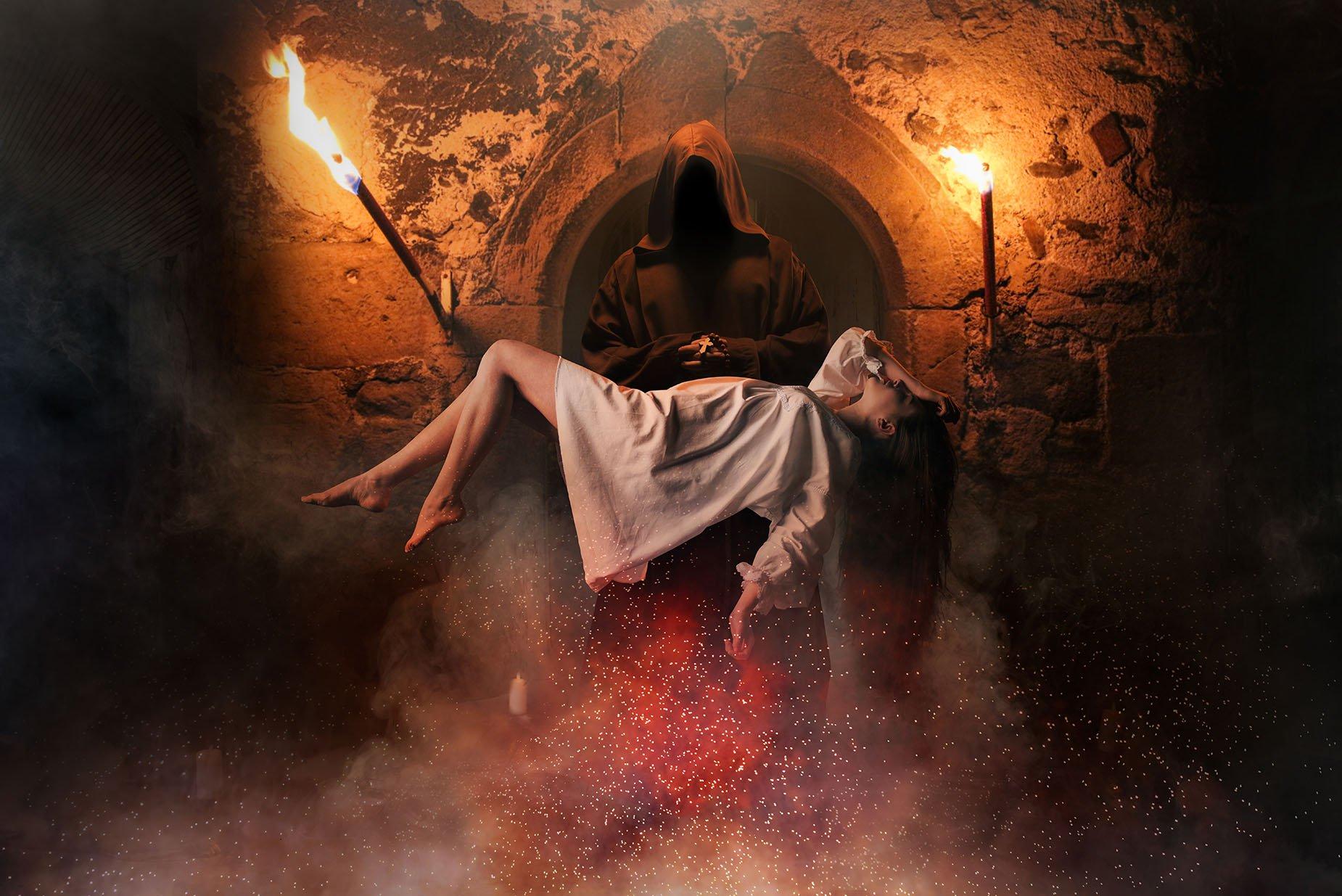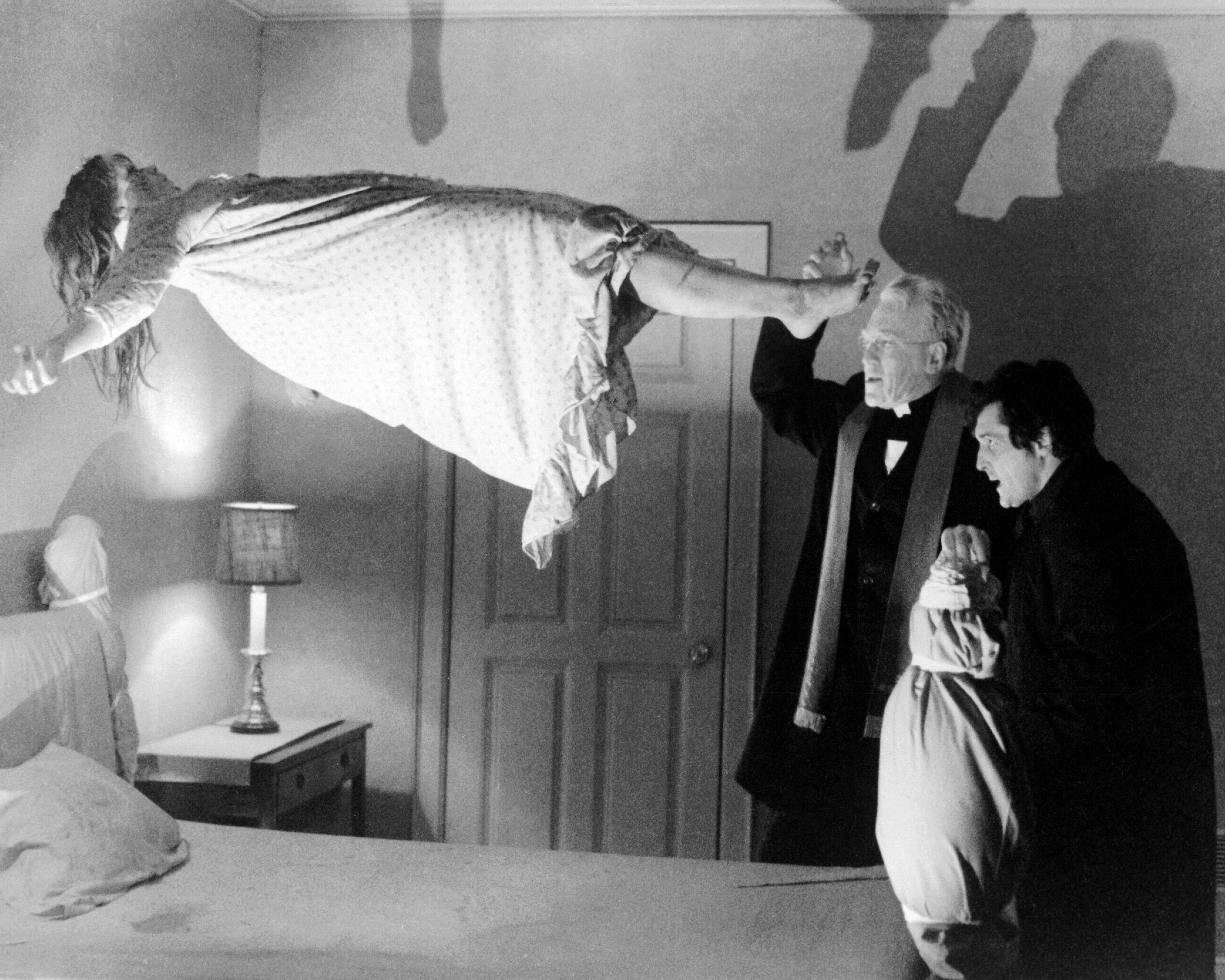Unraveling The Mystery Of An Exorcism Cast: What It Truly Means
Have you ever felt a shiver run down your spine when thinking about spiritual forces, or perhaps wondered about the stories whispered concerning strange occurrences? Well, the idea of an exorcism, and what it involves, often brings up a lot of questions for people. It's a topic that touches on deep beliefs, ancient practices, and, too, our very human fears of the unknown. We see it in chilling films, and we hear about it in old tales, but what exactly does it mean when we talk about an exorcism, and who might be involved in such a powerful act? This discussion will help us look at the many sides of this fascinating and sometimes frightening subject.
For many, the word "exorcism" might conjure up vivid images from horror movies, like that really famous 1973 classic, or even the more recent 2023 film, *The Pope's Exorcist*. These portrayals, while dramatic, do make us think about some big questions. Is the devil real, for instance? What about other malevolent spiritual beings? These stories, you know, sort of bring those deep-seated concerns right to the surface, causing us to ponder what might lie beyond our everyday experiences.
But beyond the silver screen, the concept of an exorcism, or an "exorcism cast," has a much longer and richer history. It's something that has been part of human spiritual understanding for a very long time, actually. We will explore its origins, its place in various religious traditions, and how people have approached the idea of confronting evil spirits throughout different periods. This journey, in a way, aims to shed some light on a subject that often stays in the shadows, helping us understand its true meaning and its many layers.
Table of Contents
- What Is Exorcism at Its Core?
- Exorcism in Religious Traditions
- Exorcism and Human Well-being
- Exorcism in Popular Culture
- Approaching the Unseen with Humility
- Frequently Asked Questions About Exorcism
What Is Exorcism at Its Core?
When we talk about an exorcism, the word itself comes from the ancient Greek term "exorkismós," which means "binding by oath." This really points to the idea of compelling or forcing something out, almost like making an entity promise to leave. At its heart, it's a religious or spiritual practice, so it's deeply connected to faith and belief systems. People who engage in this practice aim to evict, or force out, malevolent spiritual entities. These entities might be called demons, or jinns, or other names depending on the culture, but the goal is always to get them to abandon a person or even a specific area, you know, like a house or a piece of land.
Historical Roots and Ancient Beliefs
The idea of confronting evil spirits is not new; it's something that has been present in human societies for a very long time, actually. Cases from the ancient world show us how people thought about the problem of evil spirits. They illustrate the various ways communities dealt with these unseen forces, which were often believed to cause distress or illness. These early experiences, in a way, set the stage for how exorcism practices would develop over centuries, becoming foundational incidents in its later history. It's a bit like seeing the very first steps of a long journey.
The Widespread Belief in Possession
It's quite interesting how widely accepted the belief that demons can possess a body truly is. Across many different cultures and spiritual traditions, you'll find stories and convictions about spiritual beings taking over a person's physical form. This belief is not limited to one corner of the world; it's something that resonates with people from diverse backgrounds, which is that kind of a testament to its enduring power. People have, for a very long time, grappled with the idea of unseen influences affecting human behavior and well-being, so it's a very old concern.
Exorcism in Religious Traditions
Exorcism is, in a way, steeped in spiritual and religious understanding, meaning it's deeply embedded in how people think about the sacred and the unseen. The term itself, as we mentioned, has roots in late Latin, `exorcismus`, which just goes to show how old this concept really is. It's not just a modern idea; it has a long history of being part of various faiths, and that’s pretty significant. People have, for ages, sought ways to address what they perceive as malevolent spiritual influences, and this practice has often been their method.
Jewish and Christian Practices
Technically, an exorcism often takes the form of a ceremony. This structured event is used in both Jewish and Christian traditions to expel unwanted spiritual entities. In the Christian faith, for example, the basis for exorcism is grounded in the ministry of Jesus Christ. We see references to him casting out spirits in the Bible, like in Matthew 17:18. However, it's worth noting that there isn't a specific scriptural basis for a formal, rigid rite of exorcism, apart from perhaps the use of psalms and other prayers. This means that while the practice has a spiritual foundation, the exact methods can vary, you know, a little bit.
The Catholic Rite: A Formal Approach
The Catholic Rite of Exorcism is, in fact, a very formal liturgical practice, which means it's a structured and official ceremony within the church. This particular rite is deeply rooted in the Church's long-standing tradition. Its purpose is quite clear: to expel evil spirits from a person or a place. It's not just anyone who can perform this; it is, in fact, performed by a priest who has been specifically authorized by a bishop. This authorization process ensures that the individual undertaking such a serious task has the necessary training and spiritual authority, so it's a very serious matter.
A fascinating, if somewhat surprising, example of exorcism being used in a formal context involves royalty. Queen Elizabeth and her mother, for instance, reportedly held an exorcism at one of their royal estates. This happened after staff members expressed fears over unexplained paranormal activity. It's a story that, you know, highlights how even in very public and well-known settings, people can turn to these ancient practices when faced with phenomena they cannot otherwise explain, so it's a pretty compelling anecdote.
Exorcism and Human Well-being
It’s important to think about the human side of exorcism, too. Sometimes, an exorcism can, in fact, help a deeply religious person who might be mentally disturbed. This isn't to say that exorcism is a substitute for medical or psychological care, but for someone whose distress is tied to their spiritual beliefs, such a ritual might offer a sense of peace or resolution. The belief that one is being freed from a malevolent influence can, for some, bring about a profound sense of relief, you know, a feeling of being unburdened, which is pretty significant for their well-being.
The way people approach these situations, especially when dealing with what they perceive as demonic oppression, should always be with a sense of humility. We don't, after all, have all the answers when it comes to the unseen world. Recognizing the limits of our own understanding is, in some respects, a really important part of this process. It means approaching these matters with respect for the spiritual dimensions involved, and also with care for the person experiencing distress, so it's a very delicate balance.
Exorcism in Popular Culture
Exorcism is, quite frankly, a very popular theme in horror films, and it has been for decades. This genre often uses the practice of exorcism to explore deep-seated fears and spiritual questions. From the truly classic 1973 film, *The Exorcist*, to the more recent 2023 movie, *The Pope's Exorcist*, these stories keep audiences on the edge of their seats. They raise big questions, like the reality of the devil, and they tap into our primal anxieties about good versus evil, so they're quite powerful narratives.
Classic and Contemporary Films
The enduring appeal of exorcism stories in movies is really quite remarkable. The original *Exorcist* film, for instance, left an indelible mark on cinema and popular culture. More recently, we've seen new interpretations, like the film starring Russell Crowe, simply titled *The Exorcism*. This movie, you know, focuses on a victim of an exorcism, offering a fresh perspective on the terrifying experience. These films, in a way, keep the conversation about spiritual battles alive in the public imagination, which is pretty interesting.
The Cast Behind the Horror
When we talk about an "exorcism cast" in the context of films, it usually refers to the actors and actresses who bring these chilling stories to life. For example, if you wanted to learn more about the full cast of *The Exorcist*, you could find news, photos, and videos on sites like TV Guide. These performers, you know, have to portray intense emotions and sometimes physically demanding scenes to make the horror feel real. In the new film *The Exorcism*, Russell Crowe stars, and you can find details about its release date, trailer, and the full cast. His character's estranged daughter, Lee, played by Ryan Simpkins, is also a key part of the story, so the actors really help to build the world of the film.
The way these films are made, the actors involved, and the stories they tell, all contribute to how the general public perceives exorcism. While they are works of fiction, they often draw from real religious beliefs and historical accounts, mixing them with dramatic flair. This blending of fact and fiction can, at times, make it a bit challenging for viewers to distinguish between what is based on tradition and what is purely for entertainment, so it's something to keep in mind.
Approaching the Unseen with Humility
When considering exorcism and the broader topic of demonic oppression, Christians are often advised to approach it with a sense of humility. This means recognizing that we don't, in fact, have all the answers or complete control over these spiritual matters. It's about acknowledging the vastness of the spiritual world and our place within it, which is a really important perspective. This humble approach encourages reliance on faith and spiritual guidance rather than assuming one has all the necessary power or knowledge, so it's a very thoughtful way to engage with the topic.
The core idea is that while the basis for exorcism is grounded in the ministry of Jesus Christ, as mentioned in the Bible, the practice itself requires a deep respect for the unknown. It's not something to be taken lightly or approached without proper spiritual preparation and authorization. This sense of humility, you know, guides those who believe in and practice exorcism, ensuring they do so with reverence and caution, which is quite essential for such a profound spiritual act.
Frequently Asked Questions About Exorcism
What is the primary purpose of an exorcism?
The primary purpose of an exorcism is, in a way, to evict or force out malevolent spiritual entities, like demons or jinns, from a person or a specific area. It's a religious or spiritual practice aimed at compelling these unseen forces to abandon their hold, so that's the main goal.
Is there a formal rite of exorcism in all Christian traditions?
While the concept of casting out evil spirits is grounded in the ministry of Jesus Christ, there isn't a specific scriptural basis for a formal, standardized rite of exorcism across all Christian traditions. For instance, the Catholic Church does have a formal liturgical practice for it, performed by an authorized priest, but other denominations might approach it differently, sometimes just using psalms or general prayers, so it varies quite a bit.
How is exorcism often portrayed in popular media like films?
Exorcism is a very popular theme in horror films, often used to create suspense and explore questions about evil and the devil. Movies like *The Exorcist* (1973) and *The Pope's Exorcist* (2023) depict the practice in dramatic and chilling ways, raising questions about spiritual reality and human vulnerability, so it's usually shown as a very intense and frightening event.
Exorcism, whether viewed through a spiritual lens or as a theme in popular entertainment, remains a compelling and, in some respects, a rather mysterious subject. It's a practice deeply rooted in ancient beliefs and various religious traditions, like the formal Catholic Rite of Exorcism, which is performed by an authorized priest. We've seen how it's depicted in classic films and more recent ones, where the `exorcism cast` brings these intense stories to life, exploring the idea of unseen forces. The belief that demons can possess a body is, you know, quite widespread, and an exorcism can, in fact, offer help to a deeply religious person facing mental distress, though it's always approached with a sense of humility. To learn more about spiritual practices, you might want to visit our site. You can also find out more about the history of religious traditions here. Ultimately, understanding exorcism means looking at its spiritual depth, its historical journey, and its cultural impact, which is quite a lot to consider.

Exorcism: Facts and Fiction About Demonic Possession | Live Science

Demonic exorcisms in the temple schools of Mesopotamia - Nexus Newsfeed

Exorcism: Live to Air on Destination America on October 30 | TIME